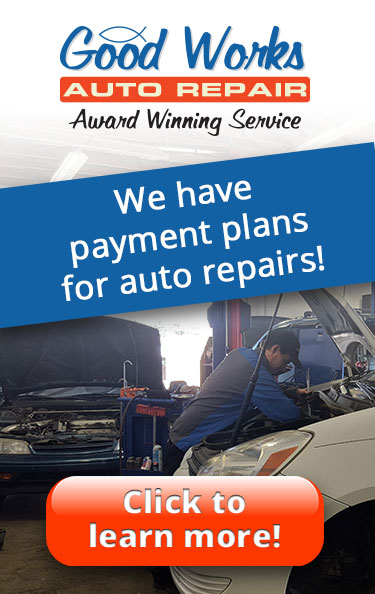 Organized people love a list. It helps them get more done, and feel more accomplished when they check something off as being completed.
Organized people love a list. It helps them get more done, and feel more accomplished when they check something off as being completed.
If you’re a vehicle owner, you should love a list, too … a preventative maintenance checklist. It might not make you feel productive, but it will help you know what to do with your vehicle and when. As list items get checked off, it means your car is getting the care it needs to keep it running optimally for longer.
Your preventative maintenance checklist
While there are plenty of things that can, and do, go wrong with vehicles, paying attention to these 10 things will help prevent bigger problems, like transmission or engine failure.
- Oil and oil filter change – Most people remember this one. This maintenance item needs to be done frequently, but the timing depends on your vehicle. Many newer vehicles, which use synthetic oil, can go 5,000 – 10,000 miles between oil changes.
- Air filter – Just like you need to breathe well in order to function properly, so does your vehicle’s engine. A clean air filter will help it do just that, and it should be replaced every 15,000 – 30,000 miles.
- Fuel filter – A dirty or clogged fuel filter will cause your vehicle to run roughly. A pressure test performed at your local repair shop can help determine whether or not this filter should be changed, but it often needs to be replaced around the 30,000 mile mark.
- Battery – This is especially critical for those of us living in Arizona, as temperature extremes like we experience in the summer months can cause a battery to deteriorate quickly. Most batteries have a maximum life span of 4 – 5 years.
- Brake fluid – Brake fluid should be replaced periodically to ensure the proper functioning of the brakes’ hydraulic system – often recommended between 20,000 and 45,000 miles.
- Brake parts (pads, shoes, rotors) – The safety of you and your passengers really depends on this one, so don’t neglect it. Brakes naturally wear out over time and should be inspected frequently to prevent complete failure. Let your mechanic know immediately if you hear strange sounds when braking, or if the brakes just don’t feel right.
- Coolant – This mix of water and antifreeze is critical for keeping your vehicle from overheating, an event which could leave you stranded and also cause expensive engine damage. Have the coolant replaced, and the whole cooling system flushed, every 60,000 miles.
- Transmission fluid – With inadequate amounts of this important fluid, your transmission can malfunction and even fail entirely, leaving you with an expensive repair. Your mechanic can check the fluid’s color, which will provide clues to when it should be replaced.
- Hoses – Extreme temperatures, as well as age, can cause these fluid-carrying pipelines to crack and sometimes break. Hoses should be inspected frequently and replaced as needed.
- Timing belt or chain – Your vehicle will have either one of these. A timing chain typically lasts longer, but should still be inspected regularly as the links can become stretched over time. A timing belt, however, will wear out more quickly and leave you stranded on the side of the road when it does. This is one time when the old adage “if it ain’t broke, don’t fix it” does not Check with your local repair shop, but most mechanics recommend replacing the timing belt around 75,000 – 90,000 miles as a preventive measure.
Scheduling preventative maintenance
So there you have it … your preventative maintenance checklist to keep your vehicle healthy and running smoothly. Now, it’s time to get to work. Give us a call, or schedule an appointment online … the choice is yours!
Schedule My Appointment Now!

